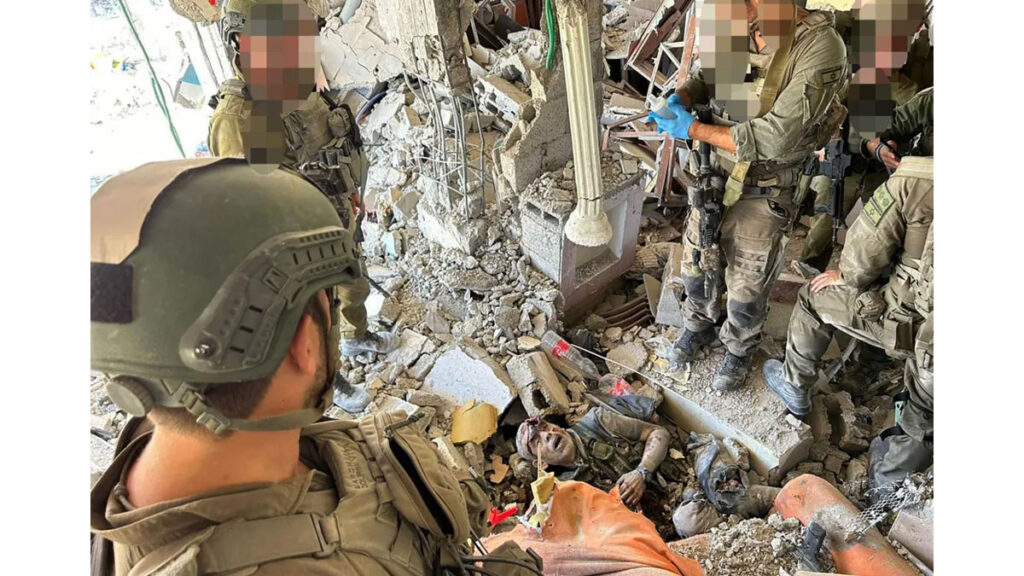Israel continues its string of ending the careers of terrorist leaders. The latest victim of Jewish justice is Yahya Sinwar — arguably one of the most brutal and defiant leaders in the Middle East terrorist network. He was the mastermind behind the savage attack on Israel on October 7, 2023.
Justice is not always swift but seems to be certain for terrorist leaders. Since the United States killed the number one terrorist leader in the world – Osama bin Laden – in a bold raid into Pakistan in 2011, the list of assassinations has included:
- Abu Muhammad al-Adnani, ISIS spokesman killed by U.S. airstrike in Syria in 2016.
- Hamza bin Laden, Osama’s son killed in U.S. airstrike in Syria in 2019.
- Abu Bakr al-Baghdadi, ISIS leader killed by U.S. airstrike in Syria in 2019.
- Qasem Soleimani, commander of the Iranian Quds Force killed by U.S. drone in Iraq in 2020.
- Abu Ibrahim al-Hashiimi al Aurashi, successor to Abu Bakr al-Baghdadi, killed in an U.S. raid in Syria in 2022.
- Ayman al-Zawahiri, bin Laden’s successor as hear of al-Qaeda, killed by U.S. drone strike in Afghanistan in 2022.
- Ismail Haniyeh, Hamas leader killed in a daring bombing in Tehran in 2024.
- Hassan Nasrallah, leader of Hezbollah was killed in in Israeli airstrike in Beirut, Lebanon in 2024
- Salen al-Arouri, Hamas deputy leader died in the attack that killed Nasrallah in 2024.
Prior to bin Laden was killed, Israel had knocked off PLO leader Abu Jihad (1988), PLO Secretary General Abu Ali Mustafa (2001), Hama co-founder Ahmed Yassin (2004) and Hezbollah commander Imad Mughniyeh (2008).
Most significant of all may be the death of Sinwar since it comes at a time when Israel has put the entire Irani terrorist network on the defensive. Israel has crushed Hamas’ military capability and is in the final stages of ending the terrorist group’s hold on Gaza.
At the same time, Israel has surprised the world with its capability in taking on Hezbollah in Lebanon – a terrorist organization that was thought to be too strong, too powerful. The Israeli military has driven Hezbollah out of southern Lebanon, killed its leader and destroyed two-thirds of its missile capabilities.
At the same time, Israel has shown its capability of striking into Iran, itself – with amazing covert operations and missile strikes. The world still awaits the Israel response to the Irani missile and drone strikes on the Jewish state. If history is a guide, the Israeli response will be significant — despite Tehran’s promise to retaliate to any retaliation.
Sinwar’s death is significant because he has been tagged as the chief obstacle to a ceasefire agreement in Gaza. Will the next leader of Hamas maintain the same hardline or will he see the writing on the wall and take a more conciliatory approach to a ceasefire and release of the hostage? Or will Hamas continue the fight until the death of the last man standing?
To the extend Hamas has any leadership at this moment, it rests with two individuals currently residing in Qatar – Khaled Meshaal and Mouse Abu Marzouk. They will pick up the gauntlet in terms of negations, if any do ensue. It is now necessary for Qatar to use its influence to convince them that Hamas has no future – and they have no longevity – if they do not come to terms on a deal to end the hostilities and release the hostages.
There still is a difference in strategy between Tel Aviv and Washington. Prime Minister Netanyahu has said the battle will continue until Hamas and Hezbollah surrender – and accept the right of Isreal to exist. His plan is victory over terrorism. Washington still pushes an immediate ceasefire.
Just a few days ago, it was leaked out of Washington that the Biden administration was considering withholding some military aid to Israel in order to mount pressure for a ceasefire. The killing of Sinwar makes that tactic a non-starter. It makes no sense to undermine your allies when they are winning.
There are two reactions that provide hope that a more peaceful future – one without pervasive terrorism – can be reached. The first is the reaction of the Palestinian people to the death of Sinwar. There were no huge public demonstrations. No gnashing of teeth and threats of revenge. That and other evidence suggest that the Palestinian people may … just may … be tiring of Hamas.
The second has been a longer indicator of hope. Even as Israel has declared war on terrorists – and has shown that they mean business – there has been very little response or criticism from most of the Arab nations. Even Iran’s closest potential ally, Syria, has been more passive than active.
The Middle East is at an inflection point. Washington is currently divided between a Chamberlain appeasement strategy and a Churchill victory strategy. Fortunately, it appears that the Churchill approach is winning – thanks to Israel’s refusal to give up the goal of victory. Netanyahu said, “enough is enough” — and this time he seems to mean it.
So, there “tis.
